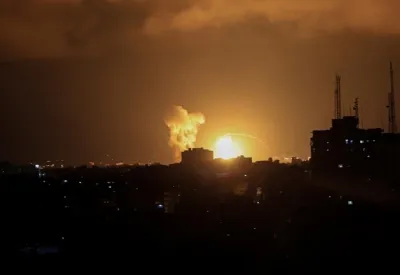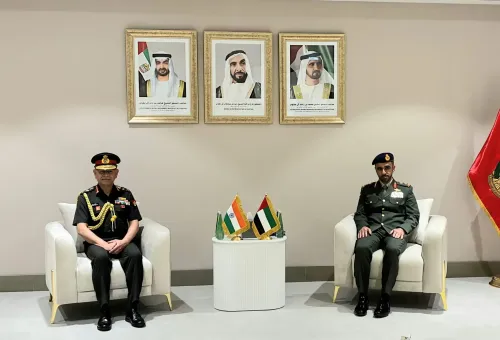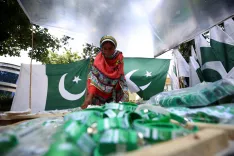Are Israeli Strikes on Iran a Threat to Regional Peace and Sovereignty?

Synopsis
Key Takeaways
- Israel's strikes on Iran have drawn significant regional condemnation.
- The attacks are viewed as a violation of sovereignty and international law.
- Countries like Tunisia and Libya have expressed serious concerns over regional stability.
- Diplomatic dialogues are urged to prevent further escalation.
- Several military and nuclear figures in Iran were reportedly killed in the strikes.
Cairo, June 14 (NationPress) Israel's extensive military operations targeting Iranian military and nuclear facilities have sparked significant backlash throughout the Middle East. Governments are condemning the strikes as a breach of international law and an infringement on Iran's sovereignty.
According to a statement from Tunisia's Ministry of Foreign Affairs, the attack has been labeled a flagrant violation of Iranian sovereignty and security. The ministry cautioned that such aggressive actions jeopardize not only regional stability but also global peace, as reported by Xinhua news agency.
Tunisia has voiced its support for the Iranian populace, urging the international community, particularly the UN Security Council, to take immediate and decisive measures to stop the assaults and guarantee accountability, as stated in their announcement.
In its condemnation of Israel's overnight strikes, the Libyan Foreign Ministry remarked that this serious escalation poses a threat to both regional and international peace and security.
The ministry called for all involved parties to settle disputes peacefully through dialogue and diplomatic channels.
Iraqi Foreign Minister Fuad Hussein condemned the Israeli military aggression during discussions with his Egyptian and Jordanian counterparts, Badr Abdelatty and Ayman Safadi, advocating for diplomatic resolutions to avert further escalation.
The Iraqi Foreign Ministry highlighted that Hussein and Abdelatty underscored the necessity of ongoing negotiations regarding Iran's nuclear program, while Hussein and Safadi reiterated their opposition to further escalation and emphasized the need for renewed dialogue.
The Israeli Defense Forces indicated that the operation on Friday targeted approximately 100 sites across Iran, including locations in Tehran, Natanz, Khondab, and Khorramabad. Iranian state media reported multiple casualties, including women and children, in a residential area of Tehran.
Israeli Prime Minister Benjamin Netanyahu stated that the objective of the assault was to undermine Iran's nuclear infrastructure, ballistic missile production, and military strength.
Reports from Iranian state media indicated the deaths of several high-ranking military officials, including Hossein Salami, commander of the Islamic Revolution Guards Corps; Mohammad Bagheri, chief of staff of the armed forces; and Gholam Ali Rashid, commander of Iran's Khatam al-Anbiya Central Headquarters.
Furthermore, two senior Iranian nuclear scientists, Mohammad Mehdi Tehranchi and Fereydoun Abbasi, were reportedly killed.










